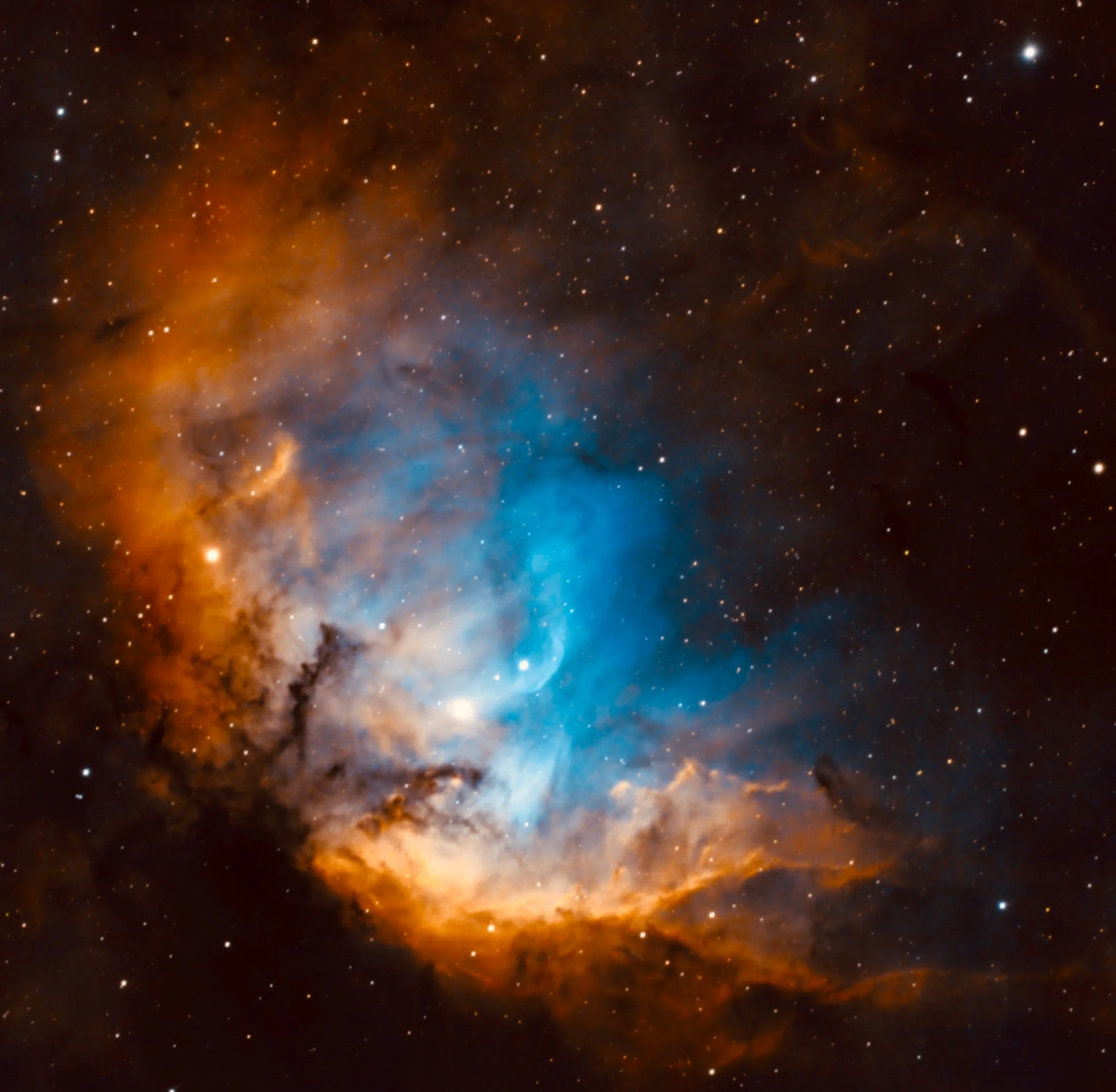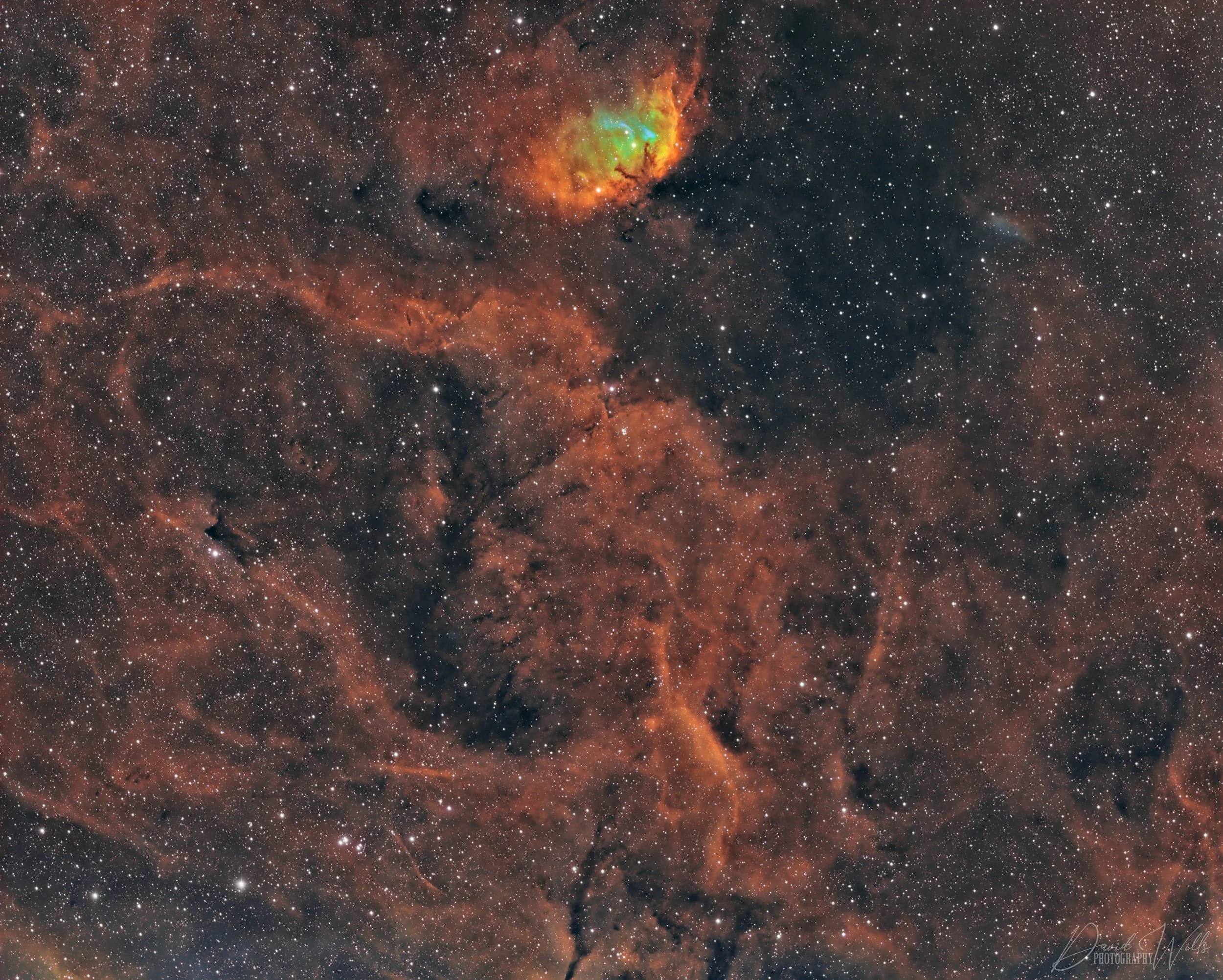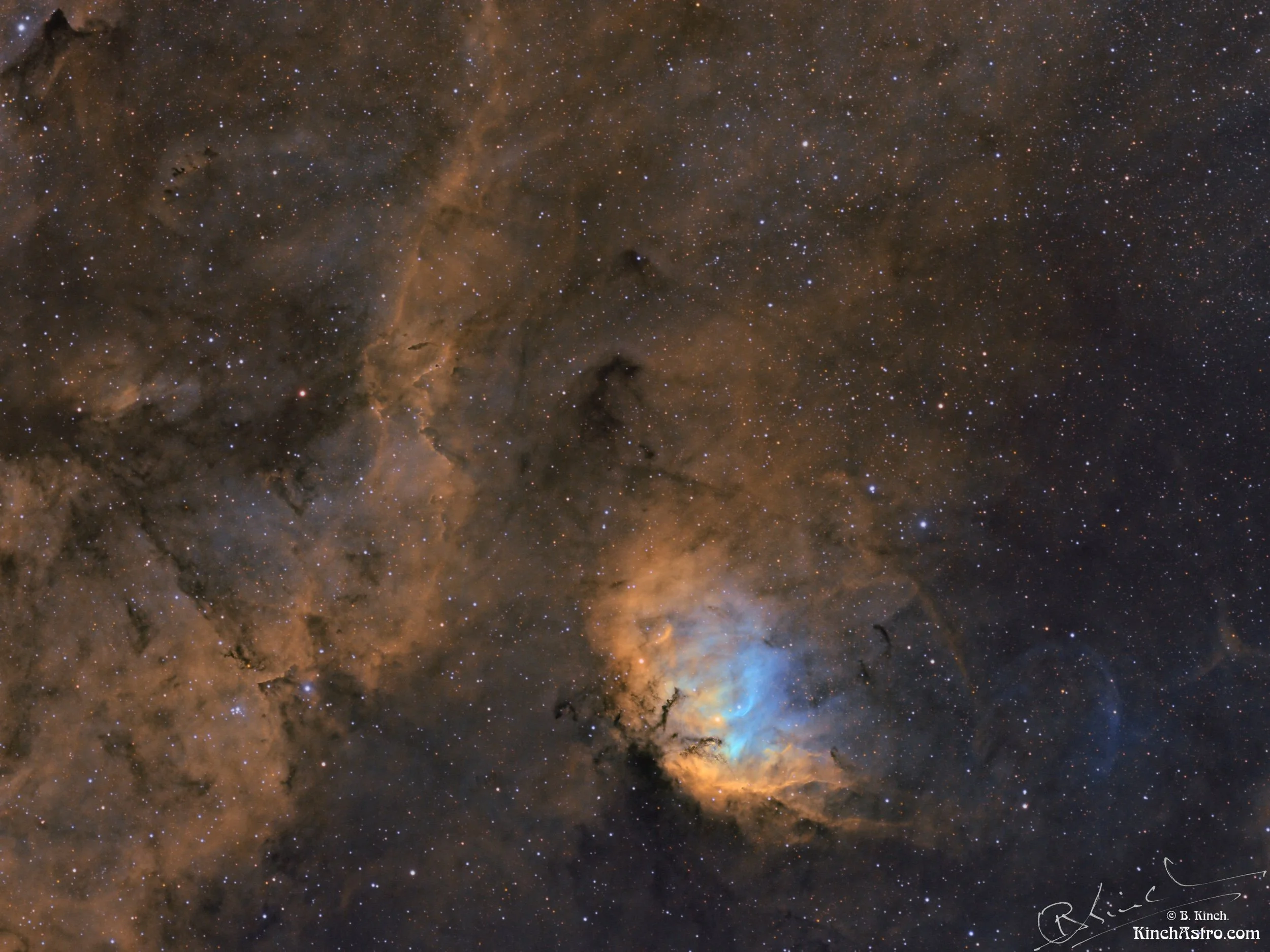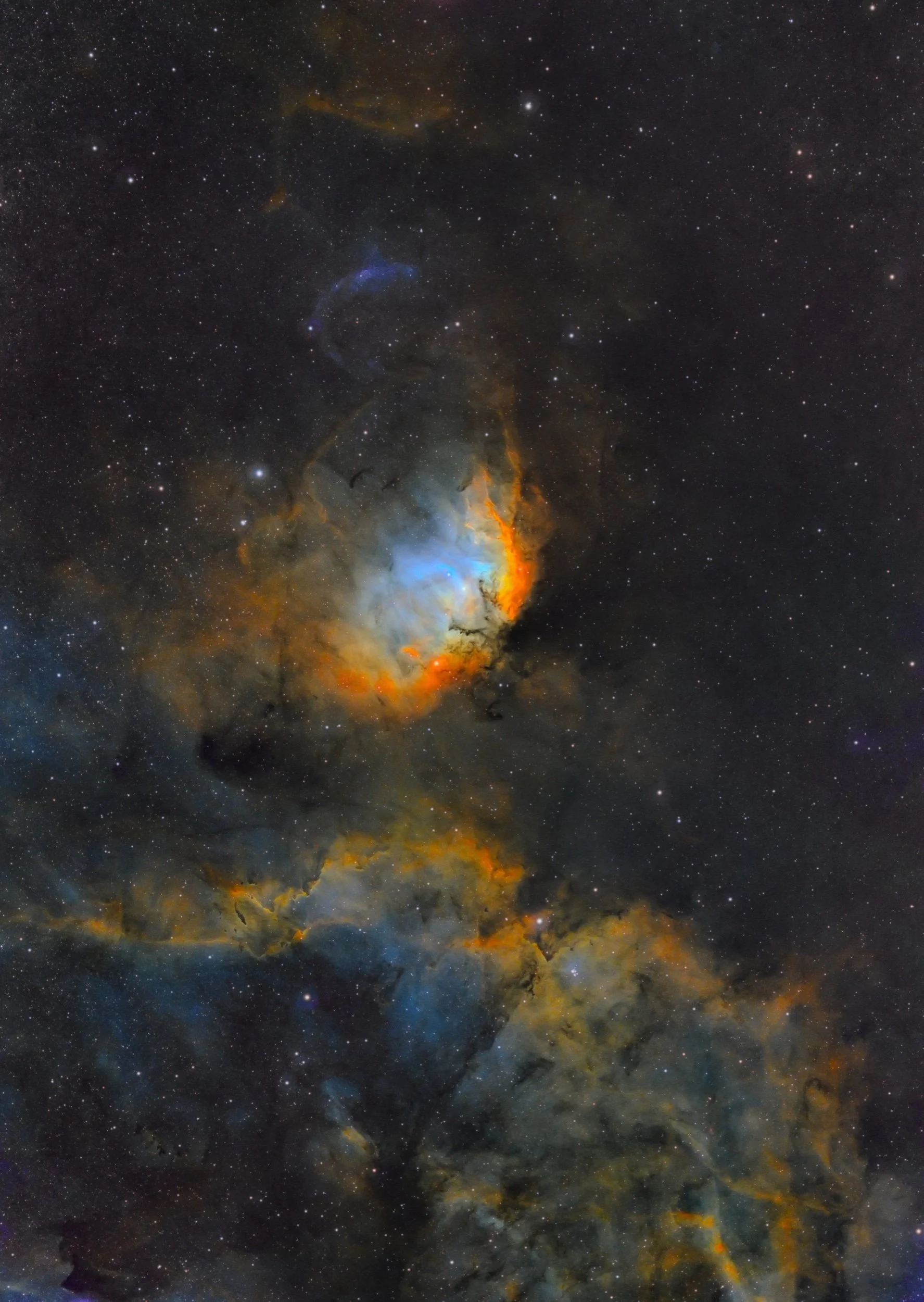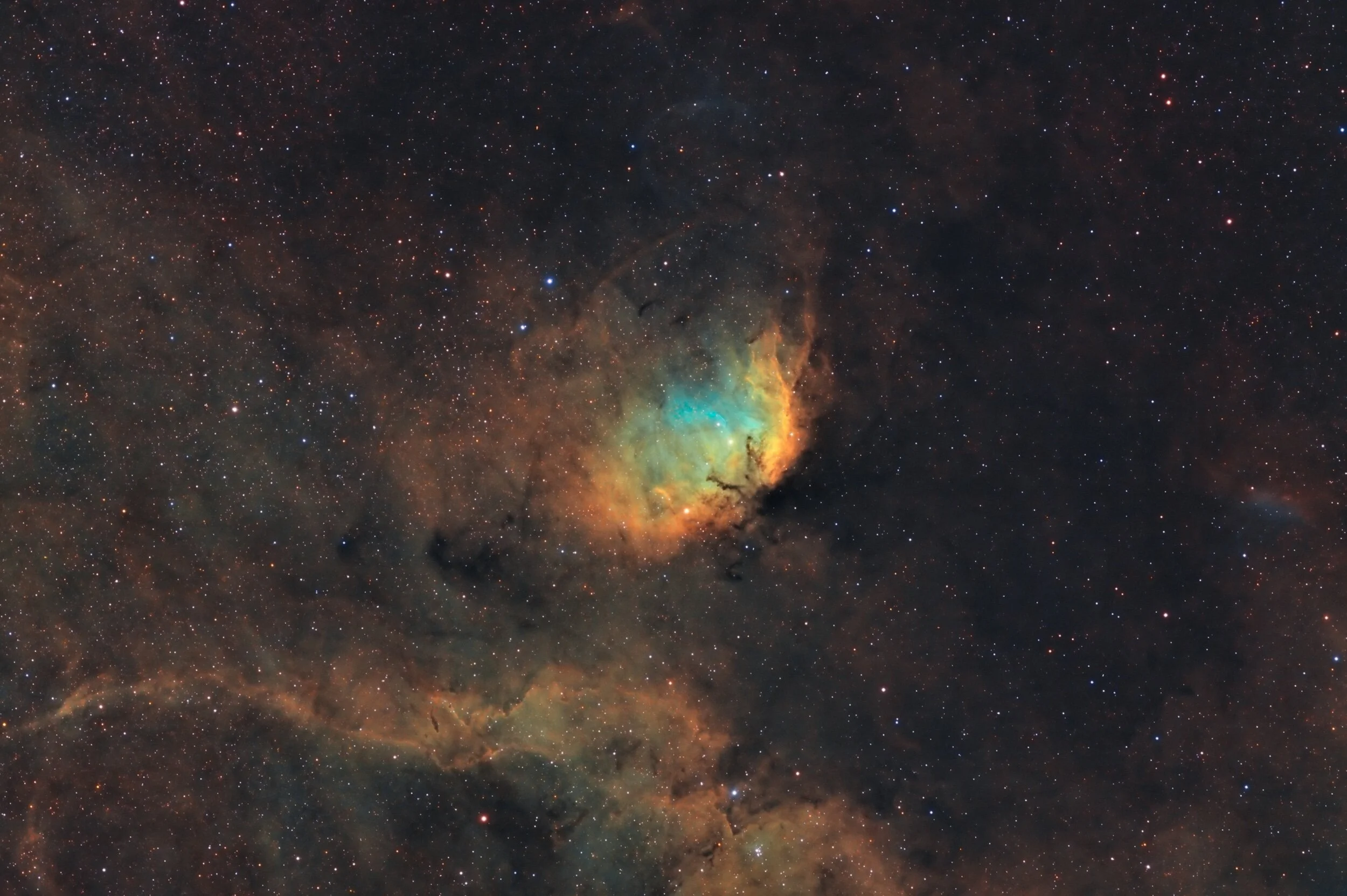
AAPOD2 Image Archives
tulip nebula sh2-101
Featured Astrophotographer on AAPOD2
SH2-101 - The Tulip Nebula
Image Description and Details : SH2-101 - The Tulip Nebula. Located 6,000 light years away in the constellation Cygnus.
Celestron 11” Edge HD with .7x reducer at F/7
Celestron OAG and a ZWO 174mm guide camera
Ioptron CEM 70 mount
ZWO 2600MM Pro cooled to -10° / gain 100.
ZWO ASIAIR pro+
ZWO EAF focuser
Chroma 3nm filters with ZWO 7x36mm EFW
Processed in Pixinsight.
Shot from my backyard, bortle 8.
Ha - 5 min subs x 64= 5.33 hrs.
Oiii - 5 min subs x 61 = 5.08 hrs.
Sii - 5 min subs x 63 = 5.25 hrs
Total integration time = 15.66 hrs.
Copyright: Richard McInnis
LBN168 Tulip Nebula
Image Description and Details : Tulip Nebula captured by David Wills at PixelSkies, Castillejar, Spain Ha 80 x 300s OIII 80 x 300s SII 105 x 300s 22 hrs 5 mins in total. Equipment used: Telescope: Takahashi Baby Q FSQ-85ED F3.9 Camera: Xpress Trius SX-694 Pro Mono Cooled to -10C Image Scale: 2.08 Guiding: OAG Filters: Astronomik Ha,OIII,SII Mount: iOptron CEM60 "Standard" GOTO Centre Balanced Equatorial Mount Image Acquisition: Voyager Observatory control: Lunatico Dragonfly Stacking and Calibrating: Pixinsight Processing: Pixinsight 1.8, Photoshop CC
Copyright: David Wills
Sh2-101
Image Description and Details : Sharpless 101 (Sh2-101) is a H II region emission nebula located in the constellation Cygnus. It is sometimes also called the Tulip Nebula because it appears to resemble the outline of a tulip when imaged photographically. It was catalogued by astronomer Stewart Sharpless in his 1959 catalogue of nebulae. It lies at a distance of about 6,000 light-years (5.7×1016 km; 3.5×1016 mi) from Earth.
Sh2-101, at least in the field seen from Earth, is in close proximity to microquasar Cygnus X-1, site of one of the first suspected black holes. Cygnus X-1. The companion star of Cygnus X-1 is a spectral class O9.7 Iab supergiant with a mass of 21 solar masses and 20 times the radius of the Sun. The period of the binary system is 5.8 days and the pair is separated by 0.2 astronomical units. The black hole has a mass of 15 solar masses and a Schwarzschild radius of 45 km. A bowshock is created by a jet of energetic particles from the black hole as they interact with the interstellar medium can be seen as an arc (bluish) to the right of the "Tulip".
Imaging telescope: Takahashi FSQ130ED
Imaging camera: ASI 2600MM
Mount: Takahashi EM 400 Temma 2M
Guiding telescope: Takahashi FS60CB
Guiding camera: QHY CCD QHY 5 II
Focal Extender / Reducer: None
Capture Software: Sequence Generator Pro, PHD 2
Processing Software: Astro Pixel Processor, PixInsight, Topaz DeNoise, Photoshop
Filters (50mm): Astrodon Ha (3nm), Astrodon SII (3nm) & Astrodon OIII (3nm)
Accessories: SeleTEK2 controlling Robofocus Focuser, ATIK EFW3
Dates: 29th May 2022
Frames:
Astrodon Ha 9 x 10'
Astrodon SII 9 x 10'
Astrodon OIII 9 x 10'
Total integration = 4 Hours 30 Mins
Copyright: Brendan Kinch
The Tulip
Image Description and Details : This colourful region, located in the constellation Cygnus, has many distinct views of energized gas, all of which give a deep sense of wonder and amazement. The night sky is wonderful, always look up!
We are star dust.
——————
This was captured over 8 nights across June and July, only 3 hours at a time due to our limited darkness on the 51st parallel North.
27hr 47min total exposure time
94x300” Sii
84x300” Ha
119x300” Oiii
31x120” R
32x120” G
28xx120” B
40x Darks
180 Flats/Dark Flats
06/06, 06/25-30, 07/09/2021
Bortle 6/7
Calgary, AB
Setup#1 - SHO
711mm Focal Length
@williamoptics GT102
@williamoptics Flat68iii
@antliafilters SHO 3nm, 2”
@antliafilters RGB, 2”
@skywatcherusa EQ6-R Pro
@zwoasi ASI2600MM-Pro, unity, -10C
@zwoasi EAF
@zwoasi EFW 7x2, 2”
@zwoasi OAG68M
@zwoasi ASI290MM-mini
@zwoasi ASIAir Pro
APP, PI, PS, MLR
Copyright: Andrew Lesser
SH2-101 Tulip Nebula
Image Description and Details :
A real challenge! Through the smoke of Canadian forest fires, during a full moon and under a Bortle 9 sky, I took this picture of the Tulip Nebula (SH2-101) with about 10 hours of exposure in SHO from Montreal. I struggled with the processing, especially to bring out the weak OIII signal…
Interesting thing here, we can see the Cygnus X-1 binary system (above the Tulip nebula on the picture). It is a high mass X-ray binary system, it is a galactic source of X-rays. It was the first source of this type to be considered as a black hole.
TSA102
CEM70
Chroma 3nm filters
QHY294M
Copyright: Jonathan Durand


